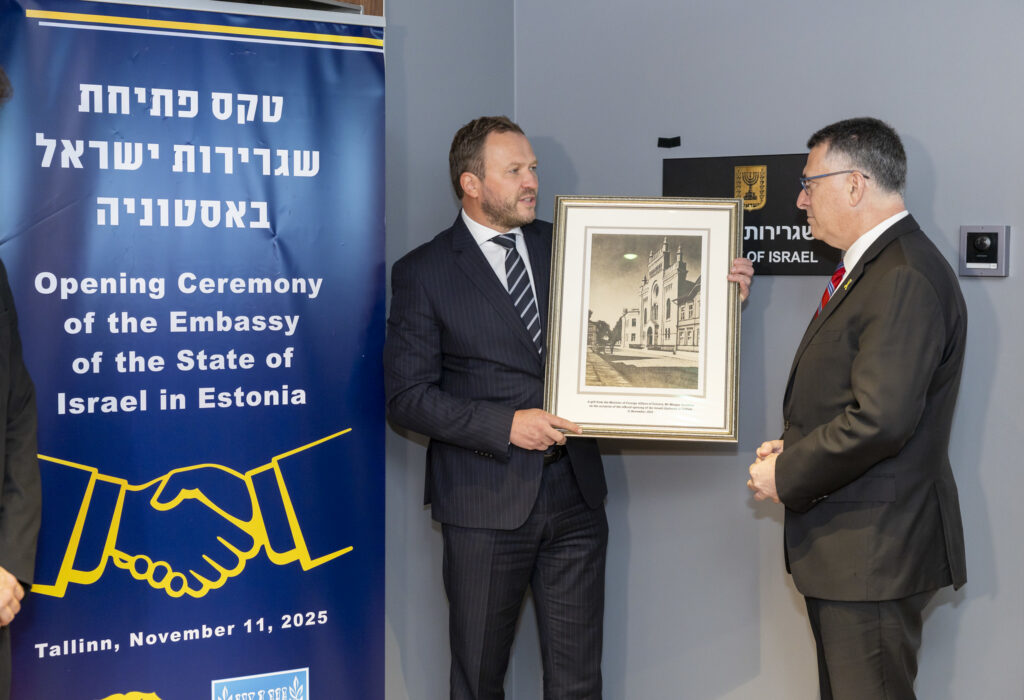A new chapter in Estonian-Israeli relations began on 11 November with the official opening of Israel’s embassy in Tallinn – a long-anticipated move that both nations say will give new momentum to political, economic, and security cooperation.
The ceremony, attended by Israel’s foreign minister and deputy prime minister, Gideon Sa’ar, and Estonia’s foreign minister, Margus Tsahkna, crowned a day of high-level meetings in which both sides reaffirmed their shared democratic values and mutual strategic interests.
“The opening of the Israeli embassy in Tallinn marks a new chapter in our partnership and dialogue,” Tsahkna said, noting that Estonia had opened its own embassy in Tel Aviv 16 years earlier.
The ministers also discussed the conflict in the Middle East. Tsahkna underscored Estonia’s support for a two-state solution and Israel’s right to self-defence, while emphasising the need for full compliance with international law. “Israel must ensure the protection of civilians and unhindered access to humanitarian aid,” he said. Estonia, he added, backed the peace initiatives led by the United States, Qatar, Egypt, and Turkey, calling on the terrorist organisation Hamas to release the bodies of all deceased hostages.
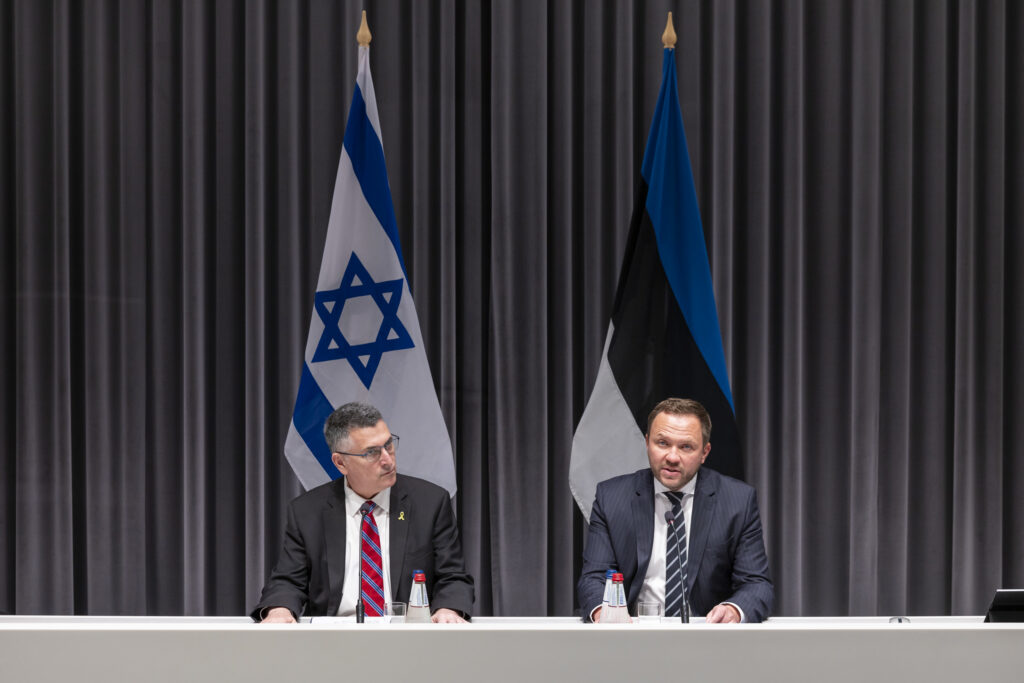
The visit was accompanied by an Estonia–Israel business forum, bringing together nearly 50 companies from the defence, cybersecurity, and ICT sectors. The aim: to foster partnerships between Israeli and Estonian firms that share expertise in innovation and national security.
The embassy’s opening drew calls for boycott from several far-left activist groups, though only around 35–40 demonstrators gathered outside the venue in Tallinn.
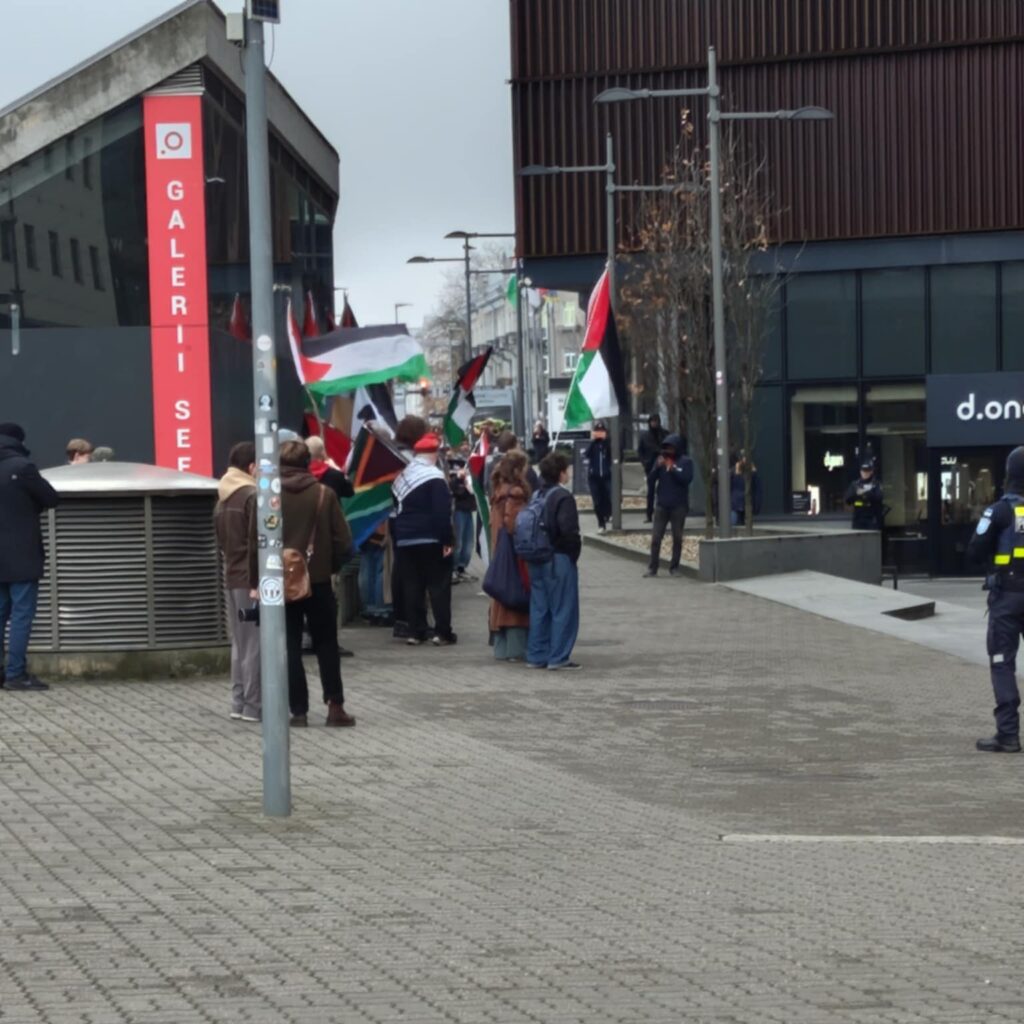
In the Estonian parliament, the speaker Lauri Hussar welcomed Sa’ar, describing the embassy’s opening as a “historic milestone” that would “give new impetus to cooperation” in digital governance and defence. “Small countries must defend themselves, and we share a common understanding of how important it is to support each other,” Hussar said.
Marko Mihkelson, chairman of the parliamentary foreign affairs committee, echoed that sentiment, pointing to a rare consensus across Estonia’s political spectrum. “Both countries are facing existential threats,” he said. “Instability in one region directly affects another – that’s why close cooperation among democratic nations is essential.”
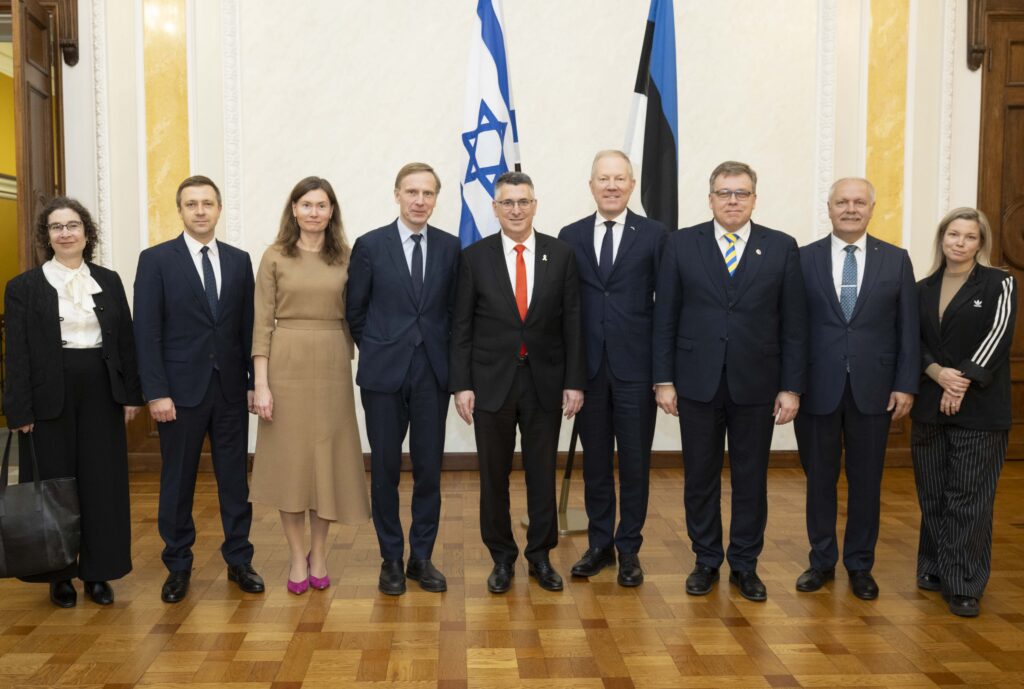
Estonia’s defence minister, Hanno Pevkur, met with Sa’ar to discuss expanding military cooperation. “Israel has built a highly capable defence force with a strong reservist base,” Pevkur noted. “Estonia has much to learn and much to share.” Israel already supplies key weapons systems to Estonia, including anti-tank and anti-ship missiles, and Pevkur hinted at new industrial partnerships in development.
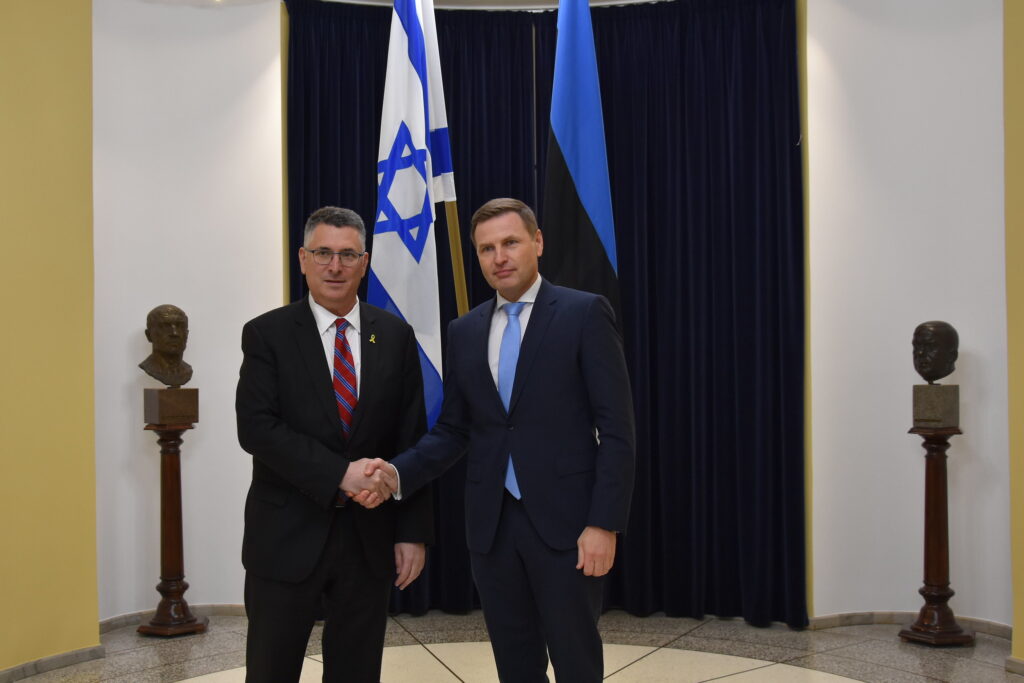
Israel approved the opening of the Tallinn embassy in October, appointing Amit Gil-Beiz as ambassador. Until now, Israel’s envoy to Estonia had been based in Helsinki. Sa’ar had earlier called Estonia “a friendly country where an Israeli embassy should have existed long ago,” describing the move as part of a wider effort to deepen ties with the Baltic states.
Israel’s prime minister Benjamin Netanyahu hailed the decision as “the right one,” citing opportunities for collaboration in technology, security, and innovation – areas in which both small nations have earned global reputations.
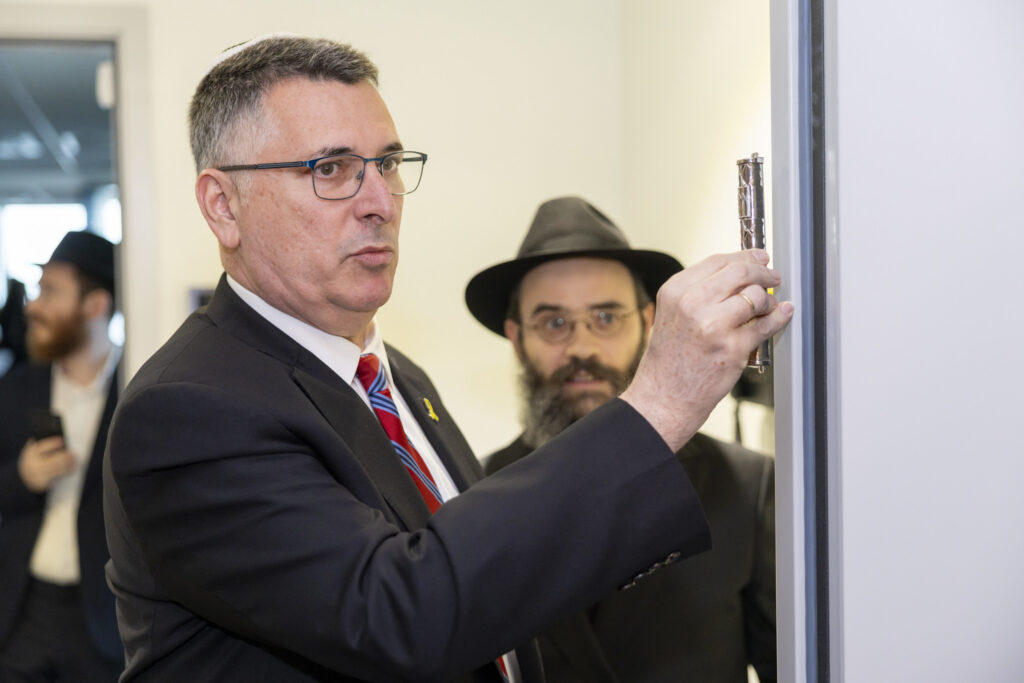
Diplomatic relations between Estonia and Israel date back to 1992, but their partnership runs deeper than formalities. In the early 1990s, Israel was among the first nations to supply arms to Estonia as it rebuilt its defence forces after regaining independence. Today, that relationship has matured into a strategic bond defined by shared values and digital excellence. As Tsahkna put it: “This is more than an embassy opening – it’s a statement that our democracies stand together.”

